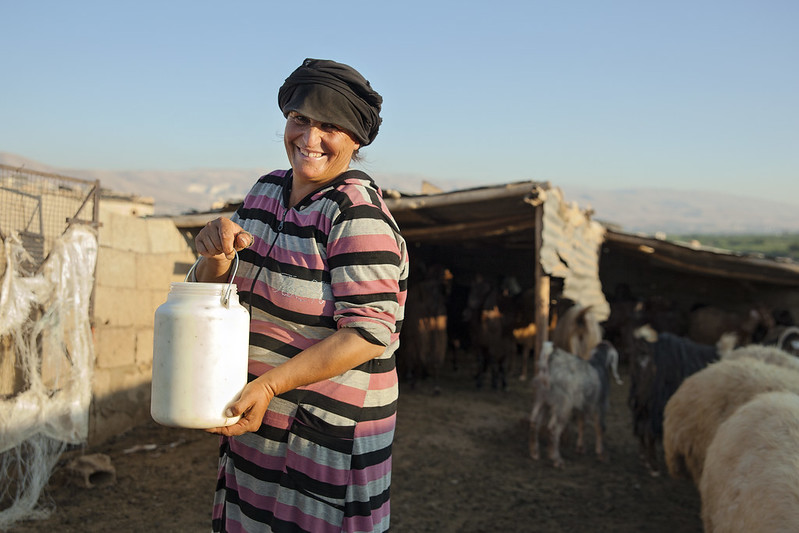UN-Funded Cooperatives Empowering Lebanese Women

The Beirut explosion in August 2020 underlined the symptoms of poor governance and political polarization embedded within Lebanese politics. The explosion resulted in eminent human and material costs amid economic deterioration and social unrest, which the COVID-19 pandemic further exacerbated. The ramifications of hurting stalemate and a global pandemic particularly impact women amid increased inequality pertinent to income and opportunity. For this reason, empowering Lebanese women is critical.
Issues Lebanese Women Face
Unemployment during the pandemic disproportionately affected Lebanese women as women experienced layoffs at a greater rate than men and faced greater wage cuts, further reinforcing discriminatory practices and income disparities. According to the World Economic Forum’s Gender Gap report of 2021, Lebanon ranked 132 among 158 countries in terms of gender inequities.
Period poverty is one of many manifestations of the economic conditions impacting Lebanese women. The local non-governmental organization Fe-male projected that by December 2020, more than 50% of women in Lebanon experienced period poverty as a result of the price of sanitary products surging by 500%, highlighting the primacy of empowering Lebanese women and promoting income equality.
Empowering Lebanese Women on a National Level
To empower Lebanese women and support women-led cooperatives and income equality, U.N Lebanon, through the support of partners, mobilized around $4.4 million worth of funding. Through this effort, U.N. Lebanon delivered support to 94 different cooperatives across varying Lebanese villages, including Deir Al Ahmar and Qana. The project supplies such cooperatives with the necessary equipment, raw material and cash to sustain their operations, especially in light of the pandemic and multiple other crises in the country.
The project has reinforced the financial resilience of a minimum of 6,000 individuals, further strengthening income equality and inclusive growth. Such projects empower Lebanese women as these efforts establish job opportunities in a country where many women struggle to access employment. This is evident in World Bank data from 2019 where 14.3% of the female labor force endured unemployment in comparison to 10.2% of males.
A Specific Outlook on Al Atayeb Cooperative
Al Atayeb, “a Lebanese women-led cooperative based in Kfardebian town, north of Beirut,” produces traditional Lebanese food, such as fruit jam and the traditional Lebanese makdous. Samira Zoughaib Akiki is the chairperson of Al Atayeb cooperative and has about 20 years of experience in the food industry.
During her career, Akiki ran “food processing workshops and training sessions for women,” U.N. News reported. This inspired her to launch the Al Atayeb cooperative to create employment opportunities for other women. She tells U.N. News, “Teaching food processing skills was my way of empowering women.”
Today, the cooperative consists of 13 women whose primary responsibilities entail processing and preparing food. These women receive both salaries and profit shares as financial compensation for their work. The cooperative purchases its ingredients from local farmers as another way to uplift communities.
With the emergence of COVID-19, Akiki sought support from the U.N. to maintain financial capacity. “This addressed our financial needs, replenishing our capital and compensated our losses: we were able to resume our activities at a time when many businesses were shutting down,” Akiki told U.N. News.
Empowering Lebanese women in these ways contributes to greater income equality and equal employment opportunities. In times of political and economic struggle, it is important to sustain support and efforts such as U.N. funding can go a long way in promoting economic security for women.
– Noor Al-Zubi
Photo: Flickr
